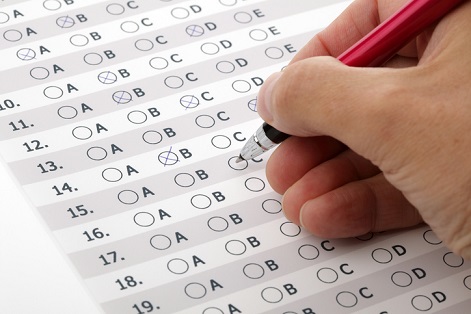
For Australia’s higher education sector, the rapid change and advancement of technology means online essay mills and “contract cheating” have become a significant problem.
Contract cheating – where students engage a third-party individual or service to complete their assessments – is widespread and exceptionally difficult to detect.
Research conducted by the University of South Australia has found that 6% of Australian students have admitted to contract cheating, but the actual number is likely to be higher. Also, 15% of students said they had bought, sold or traded notes, and 27% of students had shared their completed assignment with another student.
In April The Federal Government unveiled draft legislation making it an offence to provide or advertise cheating services to university students. Those found guilty could face up to two years imprisonment or a fine of up to $210,000.
“If you write another person’s university essay that’s cheating and you’re ripping off other hard-working students and also undermining our world-class education system,” Federal Education Minister, Dan Tehan, said.
“We will make contract cheating a crime sending a very clear message that cheats do not prosper under the Morrison Government.”
The growing problem of contract cheating has seen other measures put in place to combat the issue, including sophisticated systems like Turnitin which can check if a student has plagiarised their assignment.
But amid the efforts to stamp out the issue, one interesting question has lingered: when exactly does getting help on an assignment turn into cheating?
Peter Hurley, a Policy Fellow at the Victoria University's Mitchell Institute, recently discussed this in an article he wrote for The Conversation. In the article, Hurley says that while obvious cheating methods such as using a camera or smartwatch in an exam are employed, other times the line can be blurry.
“When [the line] is crossed, it constitutes academic misconduct. Academic misconduct is any action or attempted action that may result in creating an unfair academic advantage for yourself or others,” Hurley wrote.
Hurley said there are a wide range of activities that constitute academic misconduct, which can include fabrication, falsification, misrepresentation and plagiarism.
However, sometimes students and teachers have different ideas of academic misconduct, Hurley pointed out.
One study found around 45% of academics thought getting someone else to correct a draft could constitute academic misconduct. But only 32% of students thought the same thing. In the same survey, most academics and students agreed having someone else like a parent or friend identify errors in a draft assignment, as opposed to correcting them, was fine.
“Generally, when a lecturer, teacher or another marker is assessing an assignment they need to establish the authenticity of the work,” Hurley said.
“Authenticity means having confidence the work actually relates to the performance of the person being assessed, and not of another person.”
How to deal with cheating
Hurley noted that some of the world’s leading academic institutions have reported a 40% increase in academic misconduct cases over a three-year period.
“Academic misconduct can be a learning and cultural issue,” he said.
“Many students, particularly when they are new to higher education, are simply not aware what constitutes academic misconduct. Students can often be under enormous pressure that leads them to make poor decisions.”
Hurley said it’s possible to deal with these issues in a constructive manner that help students learn and get the support they need.
“This can include providing training to students when they first enrol, offering support to assist students who may struggle, and when academic misconduct does occur, taking appropriate steps to ensure it does not happen again,” he said.


